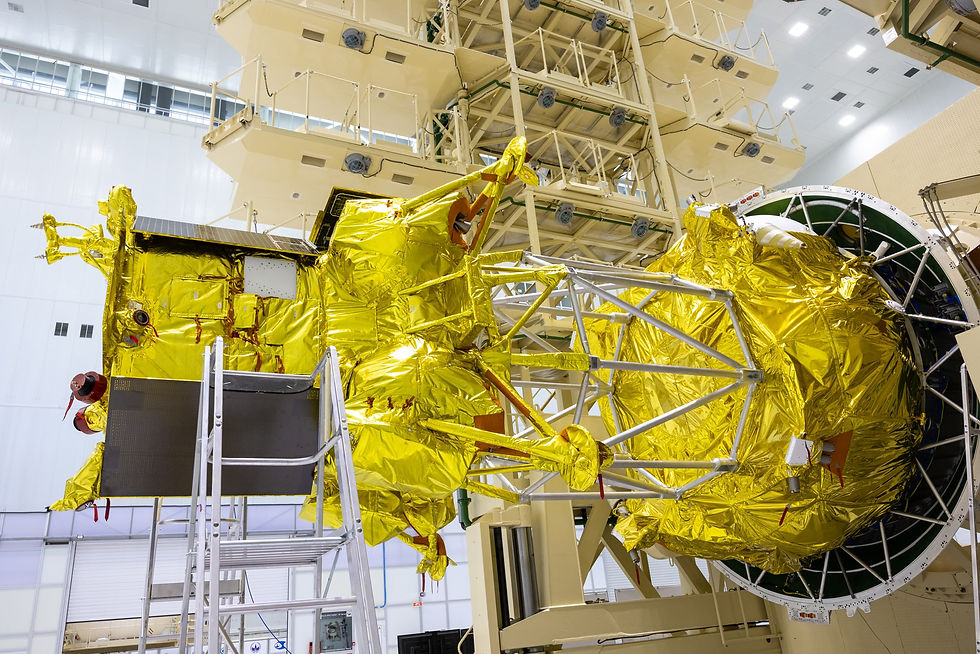Russian Space Forces Launched its Fourth Glonass-K Navigation Satellite
- Karthik Naren
- Jul 7, 2022
- 2 min read
The GLONASS-K No. 16 satellite lifted off on a Soyuz rocket from the Plesetsk Cosmodrome.

July 07, 2022; at 12:18:06.211 Moscow Time (5:18 a.m. EDT/ 0918 Zulu) Russian Space Forces launched Soyuz 2-1b/Fregat rocket with the fourth GLONASS-K satellite from Site 43 in Plesetsk Cosmodrome (Russia's "northern" spaceport).

All pre-launch and launch operations took place in normal mode. A few hours later, the new navigation satellite separated from the Fregat-M upper stage and was placed in the intended orbit under control. A stable telemetry connection was maintained showing onboard systems functioning normally.
The new satellite will complement the orbital constellation of the GLONASS Global Navigation Satellite System, which now includes 25 devices, two of the new generation Glonass-K and three more in maintenance. The satellite has been accepted for control by ground facilities at the GS Main Space Test Center
This was the 86th successful launch of a Russian launch vehicle in a row. Last year, Roskosmos broke the 1992-1993 record for the number of perfect pitches in succession. By the end of December 2021, 76 successful Russian rocket launches had been carried out: 37 from Baikonur, 23 from Plesetsk, eight from Vostochny and Kourou. There are 62 rocket launches from the Soyuz family (five from Soyuz-FG, eighteen from Soyuz-2.1a, 28 from Soyuz-2.1b, three – Soyuz-2.1v, and 4 from “Soyuz-ST-A” and “Soyuz- ST-B”), nine Proton-M launches, two Angara-A5 launches and three Rokot's launches complete the list.
The Glonass-K Spacecraft

It is a new spacecraft of the Global Navigation Satellite System. Compared to their predecessors – the Glonass-M – they have improved technical characteristics and an extended working life (ten years of operation instead of seven). The main innovation is that in addition to frequency division navigation signals in the L1 and L2 bands, they emit a civil code division signal in the L3 band. This makes it possible to significantly increase, up to tens of centimeters, the accuracy of positioning determinations, even without the use of special ground correction stations.
In addition to the navigation signal, a special radiotechnical complex is installed on board the Glonass-K to work on the KOSPAS-SARSAT international search and rescue system. That is, satellites not only allow the person involved in an air, maritime or other accident to receive data about their location, but also transmit an SOS signal with this data through the Glonass-K satellites.










Comments